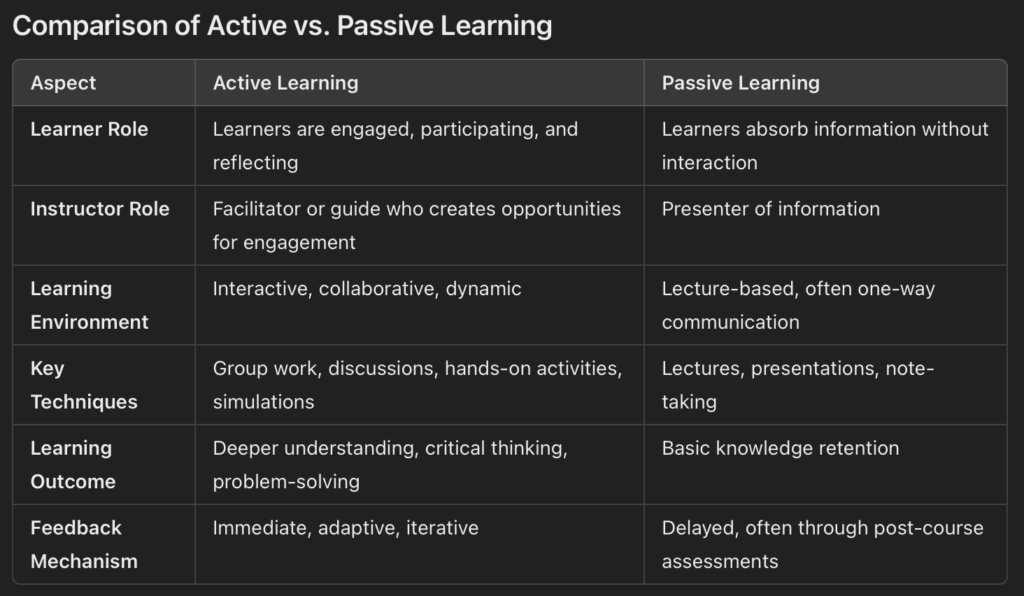The Development Company (DCo) was founded in 1999. Back then there was a large gap in the L&D industry. In fact, that gap remains largely unfilled – where are all the bespoke, disruptive, and authentic learning and development experiences?
Positive Disruption
Positive disruption in the context of learning and development (L&D) refers to intentional, innovative changes that challenge the status quo of how individuals or organisations acquire skills and knowledge. This is developed with the aim of creating not only better results but results that last. It often involves breaking away from traditional methods of learning and introducing new approaches, technologies, or models that foster better engagement, efficiency, and adaptability.
How DCo Disrupts the L&D Industry
Turning compliance into commitment
Experiential Learning & Disruption
DCo take development beyond theoretical models and classroom learning.
Experiential learning is a powerful tool in the field of L&D as it is a focus on learning through direct experience. Grounded in the idea that individuals learn best by doing and engaging in real-world tasks, reflecting on those experiences, then applying the lessons learned to future challenges.
When paired with disruption, experiential learning transforms the traditional approaches to education and training by introducing innovative methods that enhance the practical nature of learning. Disruption enables learners to engage deeply with the material and leads to more meaningful, long-lasting learning outcomes. They may participate in simulations, role-playing, case studies, or real-world projects. This hands-on approach leads to deeper understanding, as learners can test theories, fail, and adjust their approaches based on feedback.
- Active Participation vs. Passive Learning: Most training experiences are passive ones. DCo develop bespoke hands-on learning tasks and simulations that activate individuals and enhance effective teamwork. Presented with complex, open-ended problems, learners are required to contribute through critical thinking, evaluating alternatives, and justifing their solutions.
- Learning Through Failure: Delegates will experience novel experiences to enhance engagement and encourage creative thinking. During these experiences, they will be guided by their consultant through developing a healthy mindset around failure, growth, and influence.
- Real-World Problem Solving: Working along our partners and wider organisations, we offer training and developmental experiences that have real-world consequences. This develops nuance of understanding and experience in core competencies such as ethical leadership, accountability, project planning & organisation amongst others (VC Gallery)
- Community: Our models naturally bring members of an organisation together through encouraging communication and teamwork. This can lead to strengthened networks and an increased understanding of your company.

Leading Through Change
Keeping our practise relevant by adaptation to your needs isn’t just a business model – it’s a crucial way in how we display integrity as a consultancy in a world subject to continuous change.
The VUCA world has profound implications for how businesses approach learning and development. Traditional training methods that focus on stable knowledge and linear skills development are no longer adequate. To equip employees and leaders to thrive in a volatile and unpredictable world, L&D strategies should foster agility, critical thinking, and continuous learning.
L&D Frameworks for the VUCA World:
- Adaptive Learning Paths: Provide flexible, modular learning paths that can be adjusted based on the learner’s needs, emerging trends, or organisational shifts. This can include personalised learning recommendations based on real-time data and interaction.
- Collaborative Learning Environments: Facilitate peer learning and knowledge-sharing platforms where employees can learn from each other’s experiences and develop collective intelligence to solve complex problems.
- Scenario-Based Learning: Incorporating scenario-based learning allows employees to practice decision-making in realistic, uncertain environments. This prepares them to handle ambiguity and complexity in the real world.
- Targeted skill development: Enabling organisations to equip their workforce with the specific capabilities needed to navigate rapid changes, manage uncertainty, and solve complex problems effectively.
Join/Follow DCo in Our Mission
We share our journey across multiple platforms where we talk about innovative learning strategies, leadership development, and navigating the complexities of a VUCA world. Join us for insights, expert advice, and practical tips on how to stay agile, build critical skills, and drive success in an ever-changing business landscape.
- Subscript to our Podcast: The Point In Leadership Podcast
- Find us on Social Media
- Receive weekly insights by signing up to our Newsletter
- Talk to DCo

